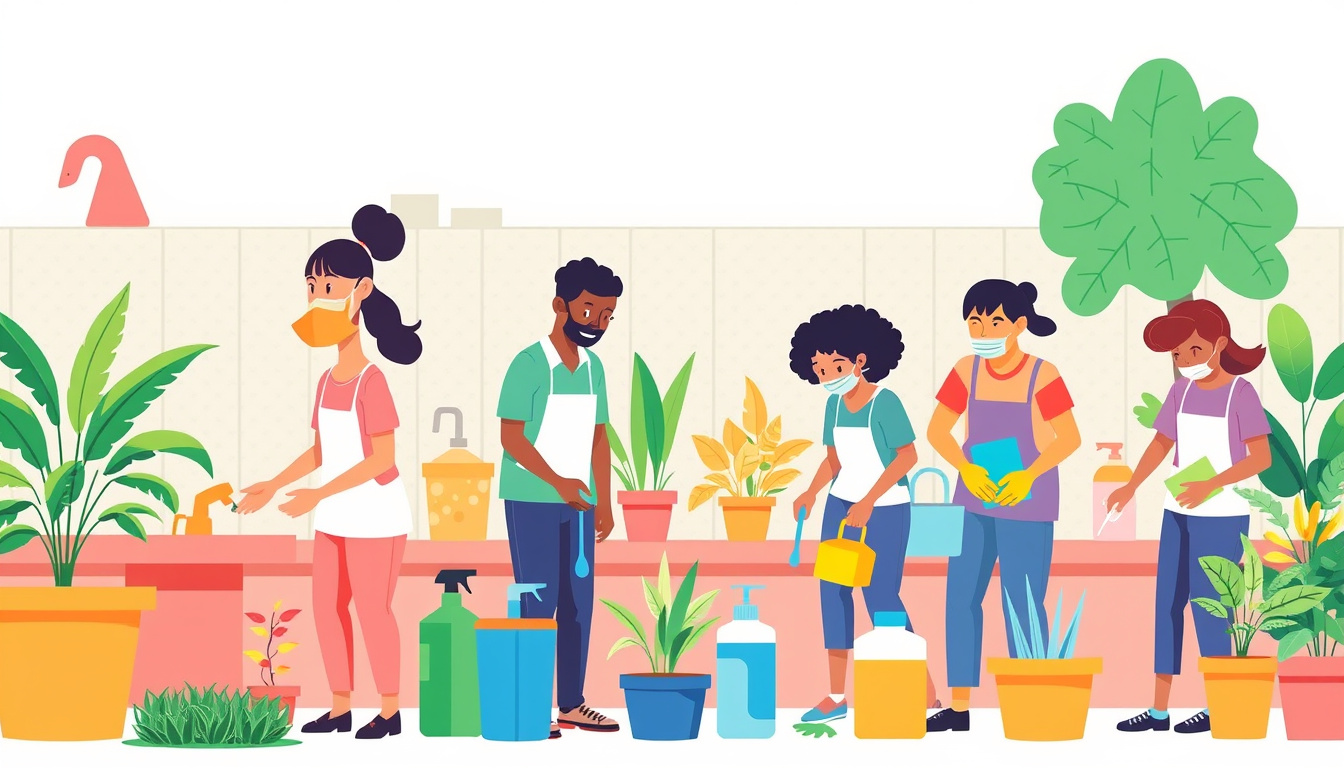
In today’s fast-paced world, we depend on clean spaces. People need clean homes, work areas, and public spots. This text gives tips that help keep spaces safe and clear.
Understanding Sanitation Practices
Sanitation covers the work of keeping spaces clean. It means proper waste work, steady cleaning, pest care, and good personal habits. When you do these tasks well, you build safer places for all.
1. Prioritize Regular Cleaning
Regular cleaning makes a real difference. Build a plan with tasks for each day, week, and month. Daily work can include wiping surfaces and sweeping floors. Weekly, you may deep clean kitchens and baths. Monthly, check behind appliances or under furniture to keep all areas neat.
2. Use the Right Cleaning Supplies
Pick cleaning items that work well and are safe for your family and pets. Choose products that kill germs and follow health advice. Read labels and follow the directions to work best with each product.
3. Focus on High-Touch Areas
Areas like doorknobs, switches, remotes, and shared devices need extra care. These spots gather germs fast. Wipe them with cloths that you can wash or throw away often.
4. Educate on Personal Hygiene
Washing hands stops germs from spreading. Teach family or coworkers to scrub their hands with soap for 20 seconds. When soap and water are not near, use a hand spray with enough alcohol to work well.
5. Implement Waste Management Strategies
Waste work matters, too. Place trash bins in spots where everyone can reach them easily. Clean out bins on a schedule so trash does not spill or stink. Compost food scraps to cut down on extra waste and to keep air fresh.
6. Promote Pest Control Measures
Pests come with risks. Seal cracks and holes to block unwanted guests. Check that windows and doors close tightly. Trim bushes and clear debris outside to cut off places where pests grow.
7. Foster a Culture of Cleanliness
At home or work, clear habits bring clean spaces. Ask everyone to care for the spot they use. Set rules that show what clean means, and praise those who stick to them.
Conclusion
Working on sanitation tasks helps build safe spaces. With regular cleaning, the right supplies, a focus on busy spots, good hand work, waste plans, pest care, and clear habits, spaces become much safer for everyone. These steps protect your health and the health of your community.




